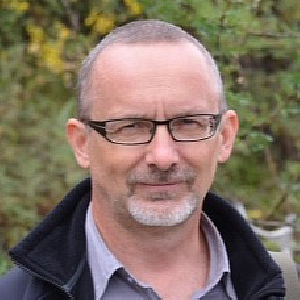PROFIL PRACOWNIKA: Krzysztof Fortuniak

prof. dr hab. Krzysztof Fortuniak
SCIENTIFIC AND SOCIAL MEDIA PROFILES
POSITION DESCRIPTION
According to §95 of the Statutes of the University of Lodz, the director of the institute:
1) represents the institute externally;
2) supports the development of research projects;
3) supports research in the field of discipline covered by the activities of the institute;
4) organizes and supervises the teaching activities of the institute;
5) conven and manage institute council meetings;
6) submits motions to the faculty council or the Dean, including motions concerning employment, other employee-related matters and awards for members of the institute;
7) manages the property of the institute and the funds granted, subject to separate regulations;
8) submits annual reports on the activities of the institute to the dean.
Research and didactic worker at the Faculty of Geographical Sciences - conducting research activities, teaching students, and participating in the education of doctoral students.
BIOGRAPHICAL NOTE
Master's degree: 1 July 1988, Master of Physics (theoretical physics) - University of Lodz, Faculty of Mathematics, Physics and Chemistry, supervisor: Dr. Stanisław Malinowski, MA thesis: Crossing relationships of Onsager relations..
PhD: June 18, 1996, PhD in Earth Sciences (Climatology) - University of Lodz, Faculty of Biology and Earth Sciences, supervisor: prof. dr hab. Kazimierz Kłysik, doctoral dissertation: Stochastic and deterministic aspects of the variability of selected elements of the Polish climate..
Postdoctoral degree (habilitation): December 16, 2003, Habilitated doctor of Earth Sciences (climatology), University of Lodz, Faculty of Geographical Sciences, postdoctoral dissertation: Urban heat island. Energetical basics, experimental studies, numerical and statistical models..
Professor title: August 1, 2011, Professor of Earth Sciences
INTERESTS
Climatology and atmosphere research, in particular:
- micrometeorological studies, in particular measurements of the energy balance and turbulent fluxes of CO2 and CH4 (eddy covariance method) of cities, agricultural and natural areas (Biebrza National Park);
- measurements and statistical analysis of the individual characteristics of the urban climate (urban heat island, urban modification of the moisture, wind and radiation fields);
- the use of a scintillometer in the study of turbulence over an urbanized area;
- numerical modeling of the climate of cities (bulk models of the energy balance; absorption of radiation in a street canyon);
- atmosphere as a non-linear dynamical system (application of deterministic chaos theory in climatology);
- time series analysis (application of various statistical methods in climatology: wavelet analysis, Fourier analysis, MESA, SSA);
ACHIEVEMENTS
CONTACT DETAILS AND OFFICE HOURS
wednesday: 12:00-14:00
